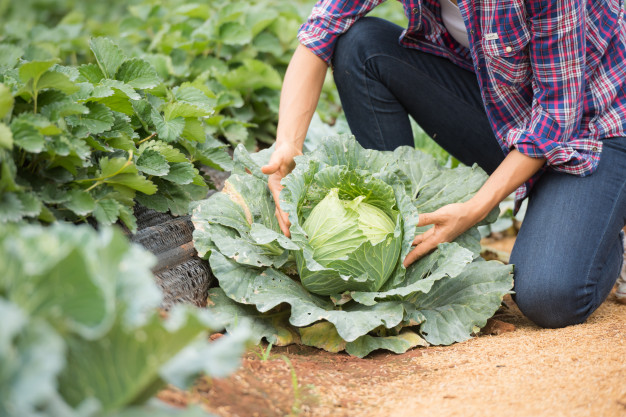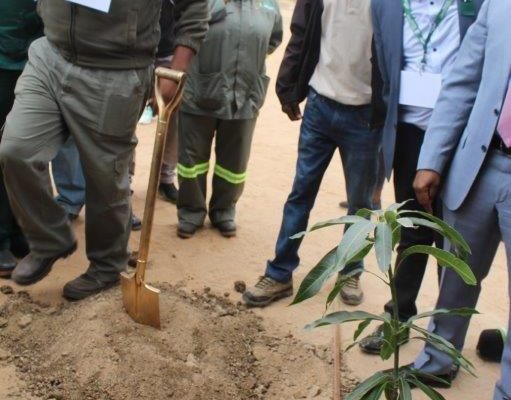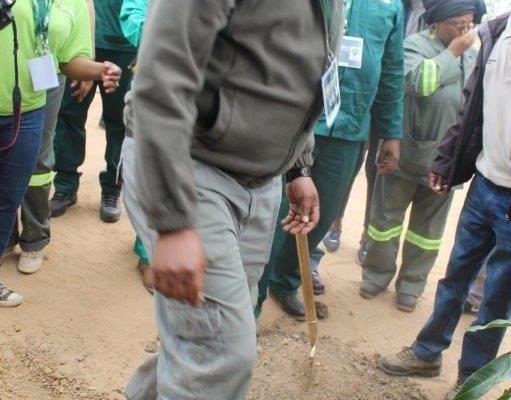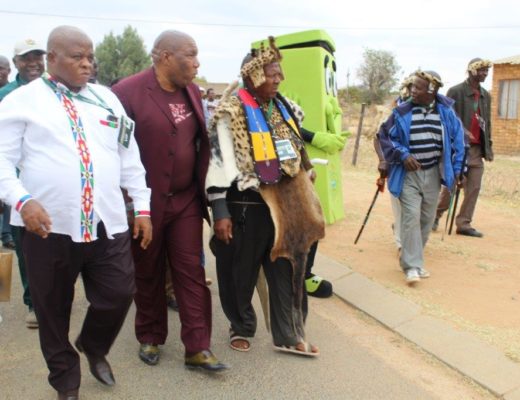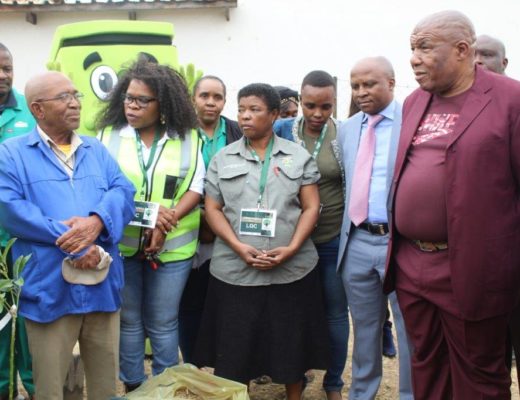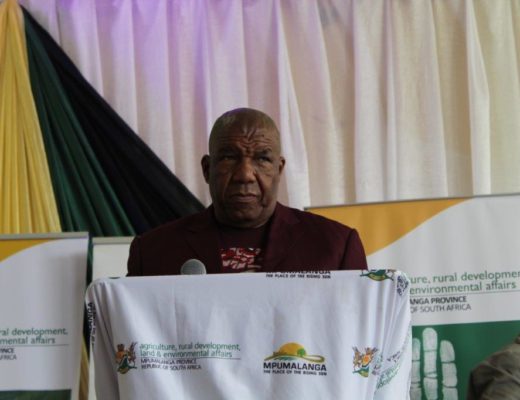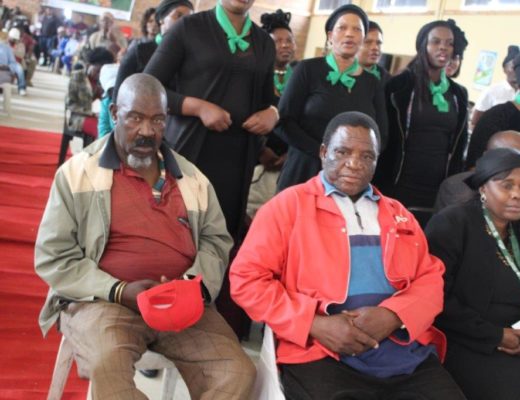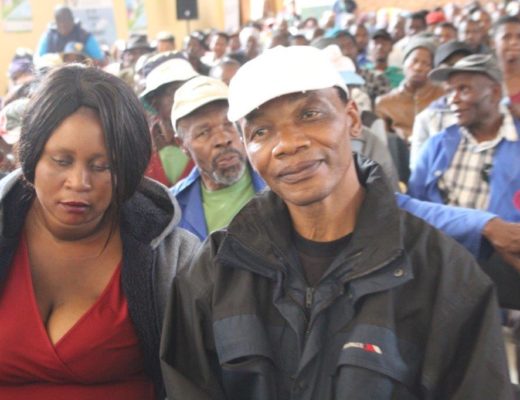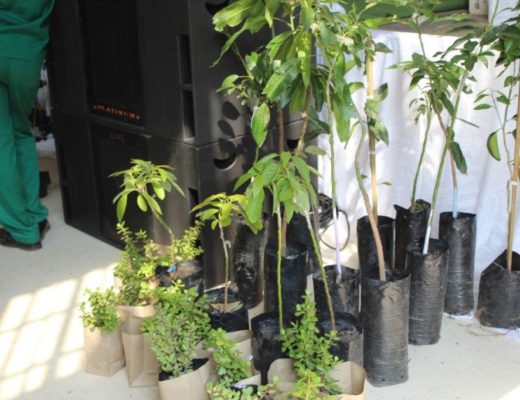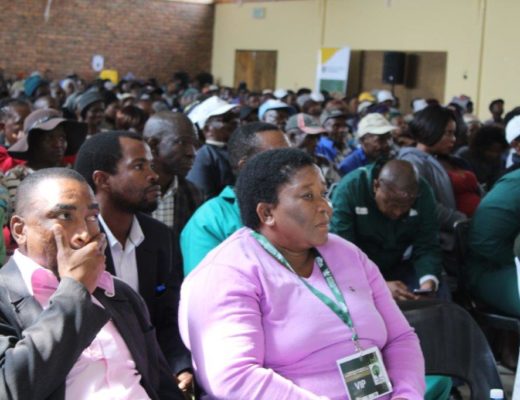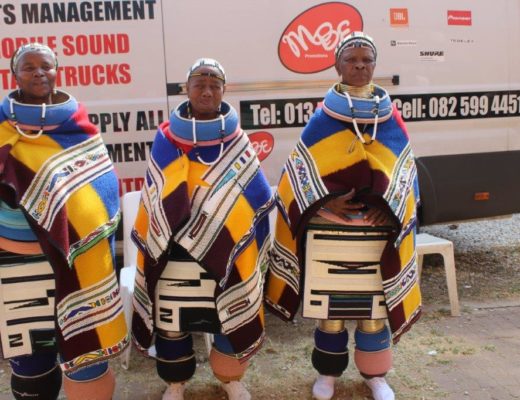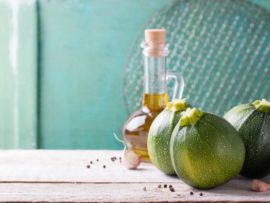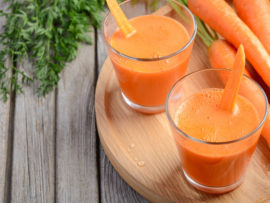Green Fingers

Green Fingers is a guide we initiated with the Department of Agriculture, Forestry & Fisheries to help local communities start a vegetable garden and highlight other planting projects. The latest project was in October 2019 (known as Ploughing season) when MEC Vusi Shongwe used a tractor in eManzana to plough a portion of the 1 200 hectares of land donated to the department by Prince Makhosonke Dlamini of Embuleni Traditional Council. The day also saw Shongwe and his entourage planting fruit trees and vegetable gardens at several homesteads in the area.
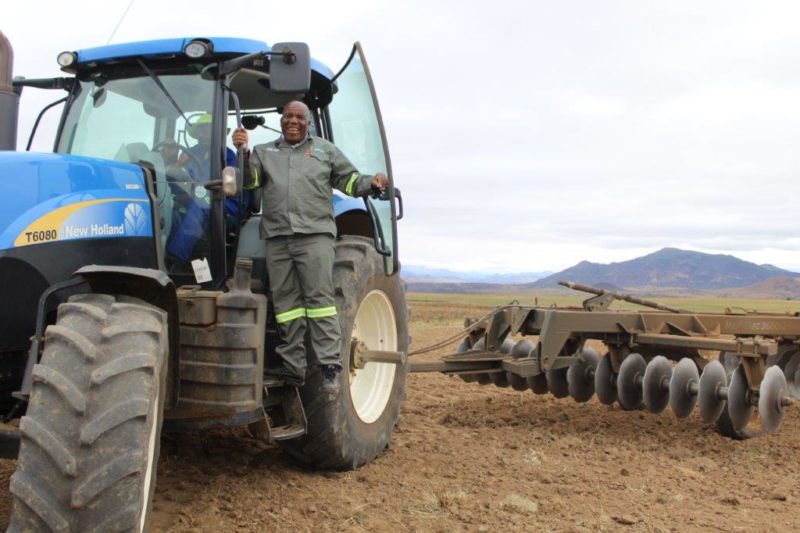
The start of the provincial planting season
MEC Vusi Shongwe for the Department of Agriculture, Rural Development, Land and Environmental Affairs, appealed to communities to use any available piece of land for crop-production purposes.
“Let us continue to plough the land to fight against hunger and poverty,” said Shongwe while speaking during the provincial planting season yesterday in eManzana, formerly Badplaas.
A generous donation by Prince Makhosonke Dlamini of Embuleni Traditional Council
“The chieftaincy had donated about 1 200 hectares for us to plough the land so that we can deal with the issue of unemployment, especially among women. We are trying by all means as a department to come up with a support in form of mechanisations, seeds and the likes to make sure we help them.
Fortunately we have other stakeholders like Sasol and others who are coming to be part to make sure that we feed the nation,” Shongwe said.
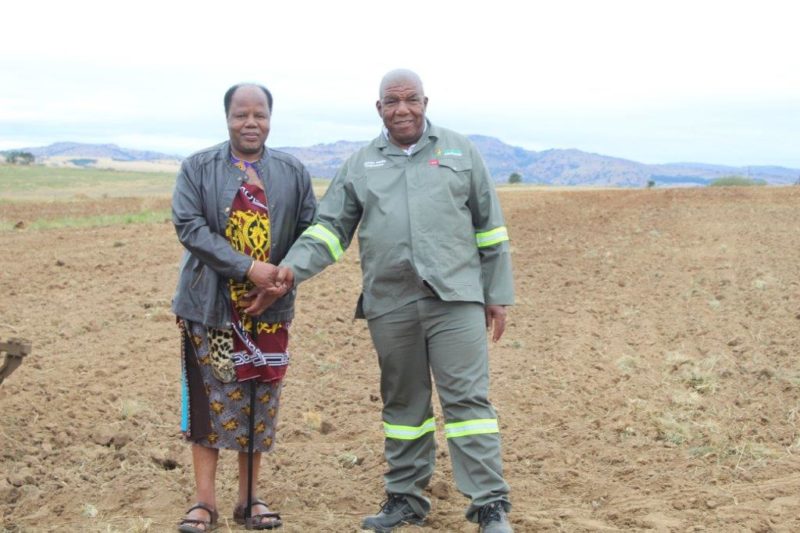
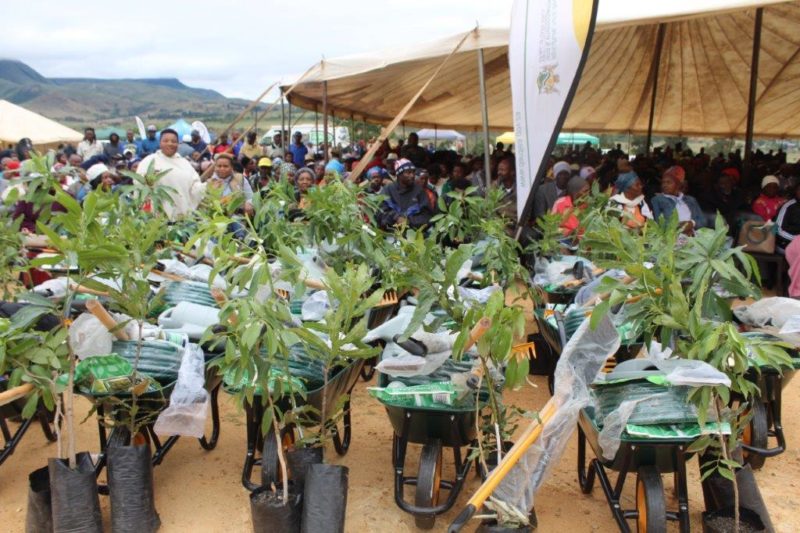
3 Years commitment from government
Shongwe said government will continue to support the project for the next three years.
“Our experts from the research centres will walk a long way helping the farmers with testing their soil and giving them advice on which crop best suits their soil type,” he said.
“We will hold their hand until they are able to stand on their own in farming,” he added.
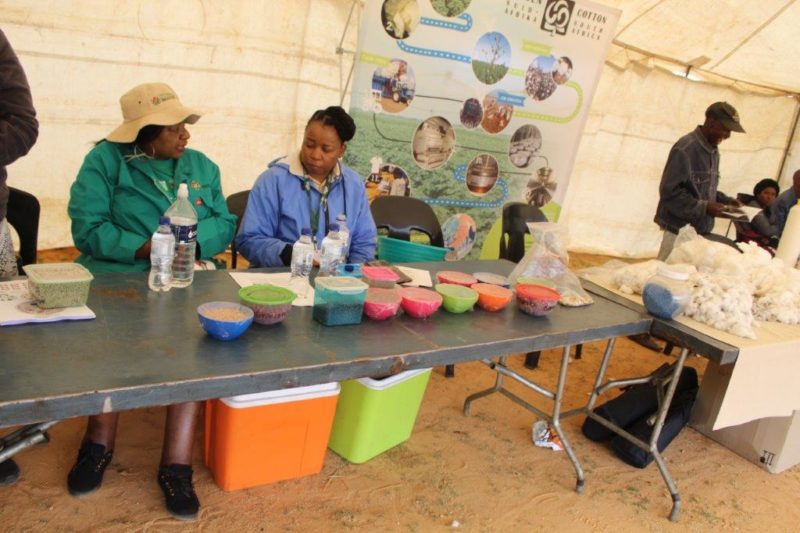
Fighting hunger with nutritious food
Chief Makhosonke says he hoped his chiefdom will be role players in ploughing nutritious food to fight hunger. He invites the youth of the area to take advantage of the agricultural opportunities by cultivating crops and fighting unemployment among the youth.
He added that the rain will fall in due course once traditional leaders had performed certain rituals to ask for rain.
Draught-resistant Crops
Talking about climate change Shongwe said he is positive that it is still going to rain in a few weeks’ time so that farmers may yield positive results.
“Climate change is here and we cannot change it, but we believe we will receive some rain soon,” added Shongwe.
He urged farmers to consider planting drought-resistant crops and making use of the latest farming methods to continue producing food. He said there are new methods to be applied and technology used to sustain and ensure food security, regardless of the persisting drought.
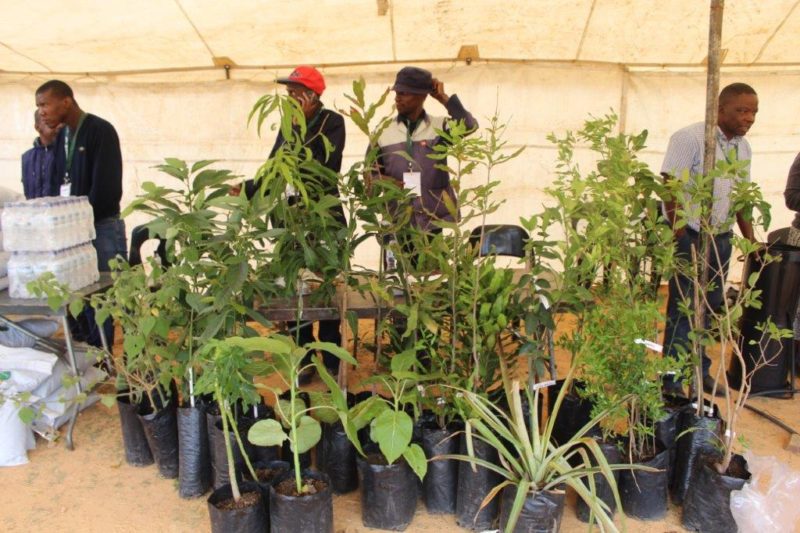
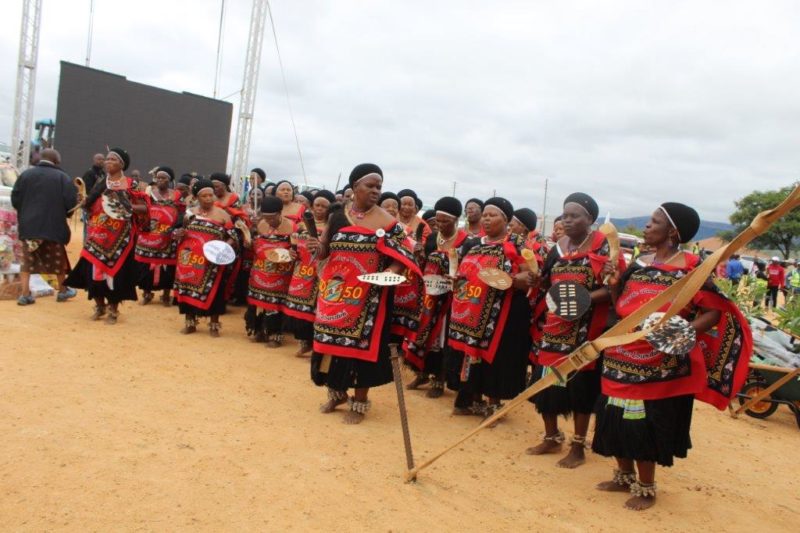
Getting the Community involved
Besides the chilly weather conditions throngs of people mostly dressed in their traditional attires attended the event.
Municipal representatives from Chief Albert Luthuli Local Municipality and Gert Sibande District Municipality attended the event.
The Farmers Guide website states the following tips to help farmers increase their corn crop yield:
1. Plant early, plant effectively – Choosing the right time to plant is often the most important part of planting.
The best strategy to use to increase yields is: if your soil is ready, start planting.
2. Practice seasonal soil rotation – Planting an alternating crop helps to diversify the demands on your soil.
This results in crops that not only yield more, but continually produce year in and year out.
3. Know the yield potential – It is not just enough to plan your seeds and hope for the best,
you should always be sure to understand your field’s growth potential
4. Always scout your fields – This will give you a chance to assess soil conditions,
notice any weeds cropping up, and check that your crops are growing healthily.
5. Ensure proper water drainage – Water management is essential to crop survival and maximizing
your corn’s yield potential. It’s important to ensure your crop is getting enough water,
but also that they aren’t being overwatered.
6. Utilise fertilisers – Cultivating your soil with fertilisers is an important part of maintaining
optimal soil conditions for crops on your farmland. Fertilising your corn at the time of seeding can help
provide the seeds with essential nutrients like potassium, phosphorous, and calcium.
7. Test your soil – Soil testing should be on your to do list right from the get-go,
because your soil and its needs will directly influence the growth of your crops.
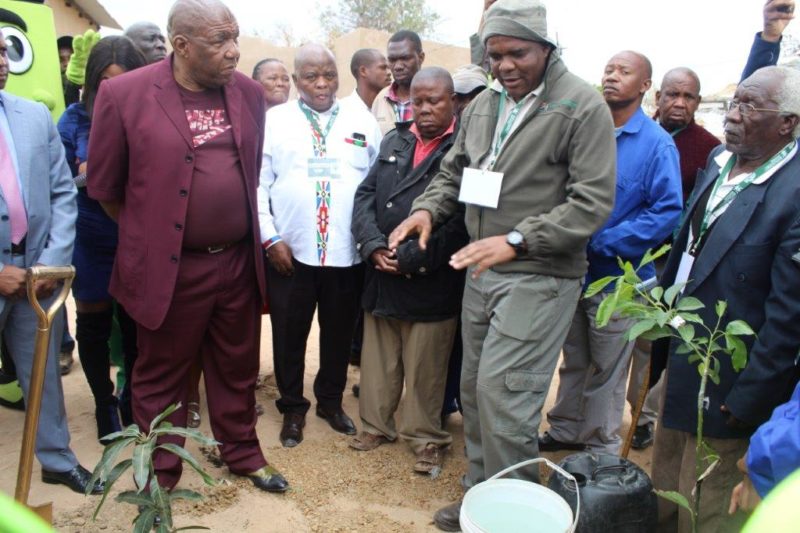
Launch of Arbhor week and Zonda Indlala Campaign
MEC for the Department of Agriculture, Rural Development, Land and Environmental Affairs (DARDLEA), Vusi Shongwe called on adults to share their indigenous knowledge in tree planting with the younger generation. The Provincial Arbor Week event was celebrated under the theme: “Arbor for mitigating Climate Change and Air Pollution”.
Activities on the day included the distribution of trees and planting of fruit and indigenous trees for local households, not only to address food security, but to be used for greening initiatives, as windbreaks and for climate change mitigation.
Arbor for mitigating Climate Change and Air Pollution
Arbor Week is celebrated annually on the first week of September, in a bid to call on all South Africans to plant and maintain both indigenous and fruit trees as a practical and symbolic gesture of sustainable environmental management.
Speaking on the importance of the day, the head of the department, Lucky Monareng, said the day aims to create awareness about the 2 000 indigenous tree species in the country, and the role that they play in our environment.
“We wish that each homestead has a fruit tree to be either consumed by the family or sold to neighbours to generate income,” he said.
He added that fruit trees can survive for up for 25 years, which means that they can produce fruits for many years. He also explained that some trees are used for medicinal purposes and as windbreaks. He added that the trees also contribute to creating job opportunities, thus boosting the economy.
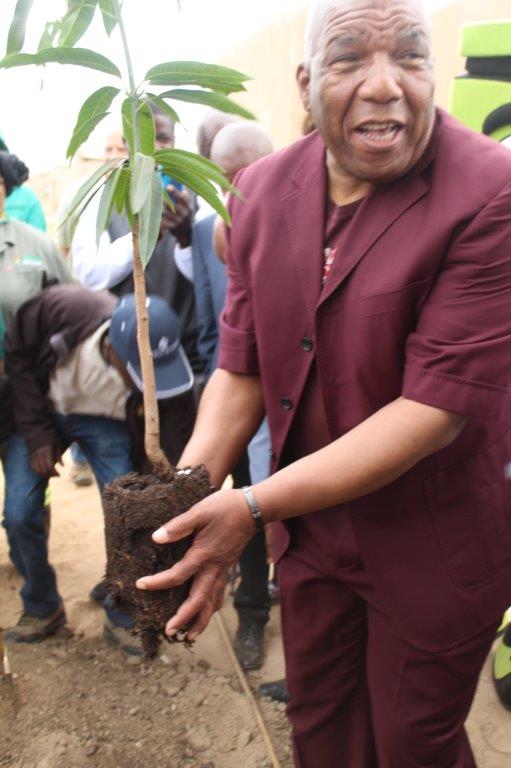
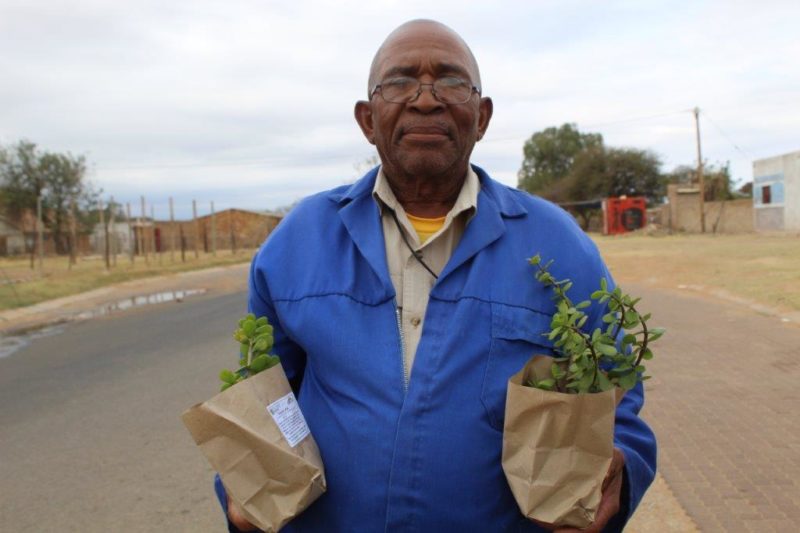
Making the most of small agricultural land
The Zonda Indlala Programme is an intervention strategy aimed at mobilizing and supporting rural households to utilise any available and small agricultural land for their own food production and sell the surplus.
Addressing the community, Shongwe urged the community to keep their environment clean and green through planting the trees handed out to them.
“These tree plants are not for free because as a department, we still have to account to government years later on how many trees were distributed, to whom and if those trees will still be alive years later,” he said.
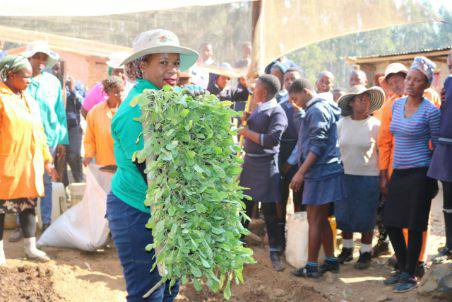
Government Nutrition Programme (GNP)
In order to accelerate access to markets by farmers, the department, through the GNP will be supplying produce to the following departments: education (schools), health (hospitals), safety, security and liaison (Training College) and correctional services (prisons).
The Comprehensive Rural Development Programme (CRDP)
The CRDP has been allocated back to the department for coordination. This programme will bring back the much anticipated integrated planning that is important to develop our rural communities. The department, together with the Department of Rural Development and Land Reform will urgently start with planning to bring back the CRDP to its full implementation mode again.

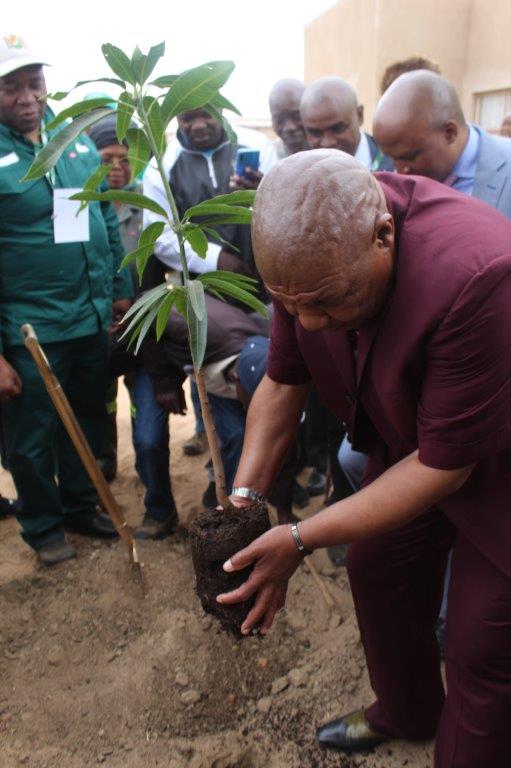
2019/20 Dardlea Policy and Budget Speech
Mpumalanga province is mainly rural and dependent to a large extent on the agricultural sector which is one of the top three economic drivers, after mining and utilities.
The Mpumalanga sector showed a steady increase towards its contribution to the national growth domestic product (GDP) of about 8,1 per cent between 2014 and 2017, according to the SERO report dated June 2019.
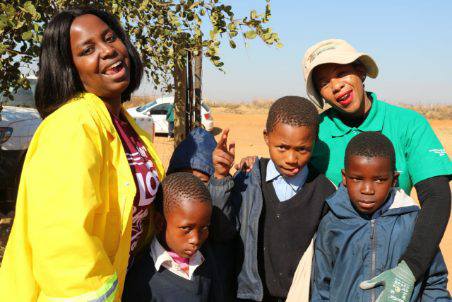
Go Green with the Community
The staff from Gert Sibande District office spent July 16, at the Nokuthula Primary School in Mkhondo Local Municipality as part of Mandela Month commemorations. Activities at the school involved starting a vegetable garden in the school yard, a donation of garden tools and trees and the painting of classrooms. Learners also shared poems about the late great Statesman, Dr Nelson Mandela, while guest speaker, Mr MJ Msimang delivered a Memorial Lecture on Madiba.
The aim was to commemorate Mandela’s legacy in a sustainable way that brings about enduring change. Mandela Month is celebrated through every individual’s contribution towards making the world a better place. Mandela Day is celebrated across the world annually on his birthday on July 18.
“Zonda Indlala” looks at the future
I am proud to announce that the department innovatively introduced and piloted a new sub-programme of planting fruit and nuts trees in each household, called Zonda Indlala Programme (ZIP). The programme is aimed to reach all levels of production that includes the backyard household level, and both emerging and commercial farmers. This will see our farmers participating in agro-processing opportunities such as fruit-drying, achar, juice and jam processing.
Further to that, this programme will address the multifaceted challenges of land unavailability, food insecurity, carbon emission, high levels of poverty, unemployment and inequality.
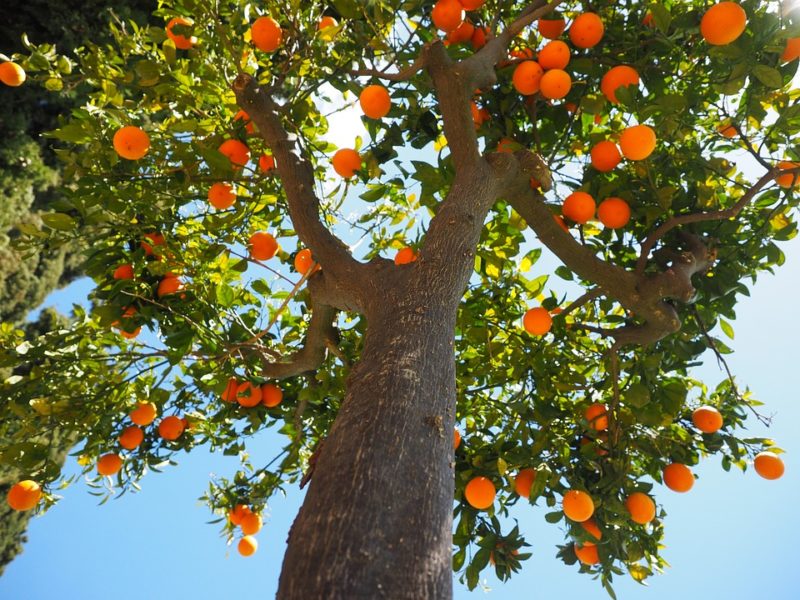

Masibuyele Esibayeni
The department will continue with support of livestock to farmers. The department will continue supplying and delivery to farmers 14 sets of livestock.
They will be spread as follows: 2 sets of cattle (bull and heifer), 6 sets of goats (buck and doe), 1 set of sheep (ram and ewe), 5 sets of pigs (boar and sow).

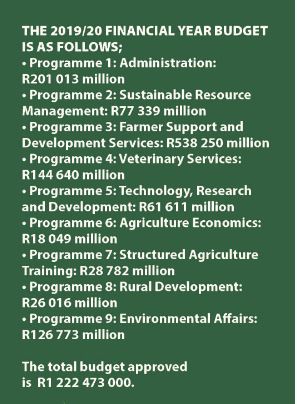

Dairy Production Plant
This financial year the department will take advantage of introducing our farmers into the highly contested sector of dairy production. The department has thus increased its focus area on assisting dairy farmers to increase their production level over the MTSF period.
These farmers will supply their milk to the much anticipated dairy production plant to be constructed in the City of Mbombela.
The dairy plant will benefit the local traders and surrounding households, who will no longer travel long distances to acquire fresh dairy products. This will also trigger unlimited spin-offs such as logistics and indirect jobs.
AGRI-HUBS
The next five years will see a continued provision of comprehensive support to the three established agri-hubs that are the Mkhuhlu, Mkhondo and the Dr JS Moroka Agri-Hubs. These hubs will open up the much needed export market to the farmers’ produce. To date, I am proud to announce that the Mkhuhlu Agri-Hub is already operational. This financial year the department will see Mkhondo and Dr JS Moroka Agri-Hubs coming into operation.
These agri-hubs will bring much-needed agro-processing facilities to the doorsteps of our farmers, who will supply their produce directly to the agri-hubs, thereby eliminating potential middlemen and unnecessary high transport costs. This will open opportunities of value adding and storage to reduce the wastage from which they have always suffered, and create economic spin-offs for economic development. Already the Province has entered into mutual agreements with countries such as Mozambique, Angola, Oman, and Russia.
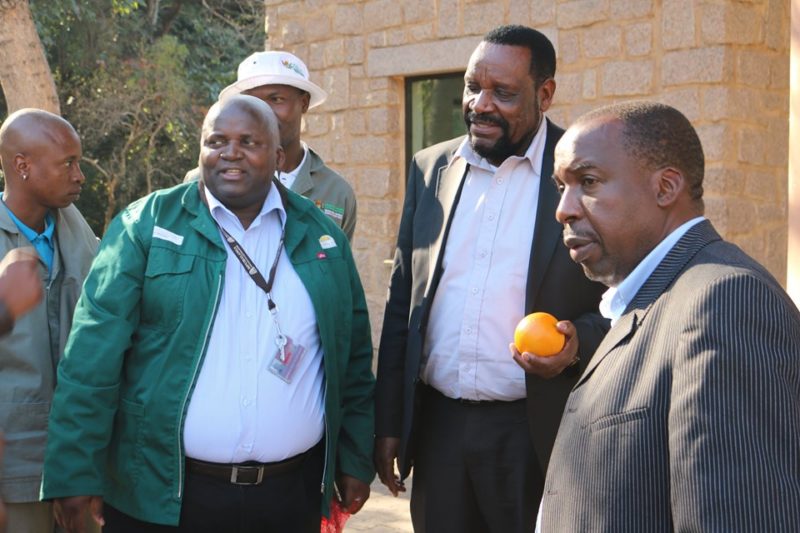
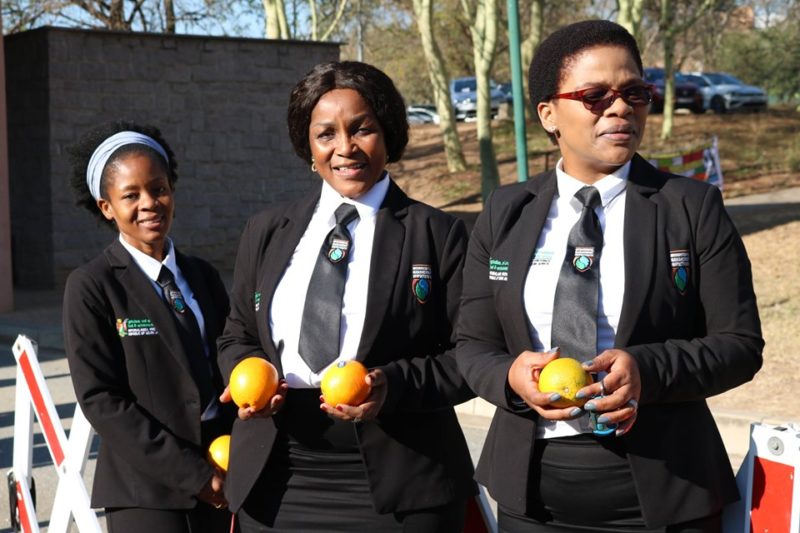
Mpumalanga Young Farmer incubation programme (Fortune 40)
The Mpumalanga Young Farmer Incubation Programme has already attracted a lot of interest and appreciation from the youth in the province.
The department will continue to roll out this programme and ensure that these Fortune 40 farms are fully operational, sustainable and linked to local, national and international markets, including the GNP and agri-hubs.
The department will over the MTSF period place the incubated youth from this programme on identified land from the various sources like the unused and underutilised state land, private land such as the Partnership Model with Sasol and others. The department targets to reach a total 35 new farms over this period.
All of these plants are productive plants that are relatively easy to grow. We are going to start your garden with:
Zucchini Squash, Peppers, Cabbage, Bush Beans, Lettuce, Beets
Carrots, Chard and Radishes.
Plants for your first
vegetable garden
All of these plants are productive plants that are relatively easy to grow. We are going to start your garden with:
Zucchini Squash, Peppers, Cabbage, Bush Beans, Lettuce, Beets
Carrots, Chard and Radishes.
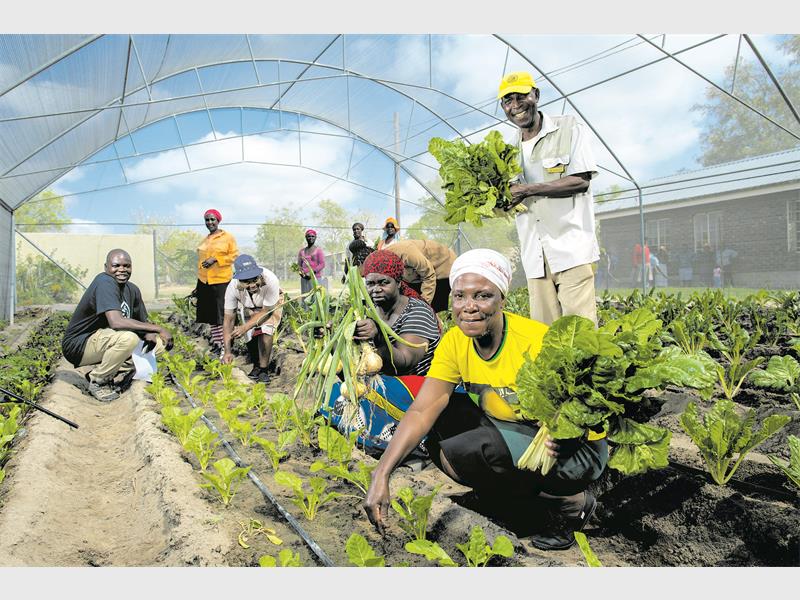
Vegetable tunnels give kids brain food
Vegetables produced in the Justicia area are not only providing vital nutrition to preschoolers, but are also enriching the diets of nearby community members.
Henna Preschool supports 150 children and is the biggest of a cluster of three rural early development centres owned by the More Community Trust. Read the full story here
